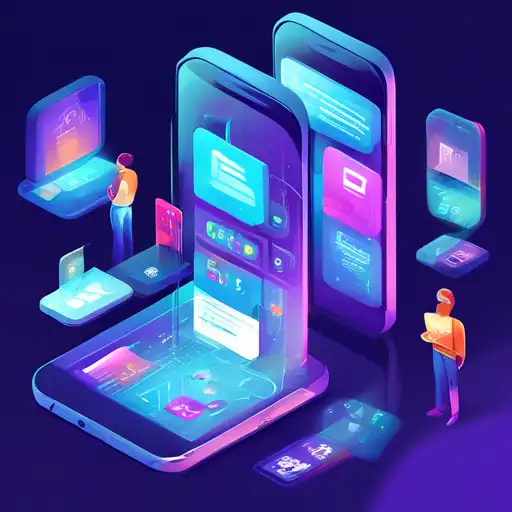Introduction to Mobile Development Evolution
The landscape of mobile development is continuously evolving, driven by technological advancements and changing user expectations. As we look towards the future, several key trends are emerging that promise to redefine how apps are developed and experienced. This article explores these pivotal trends, offering insights into what developers and businesses should watch out for.
1. The Rise of 5G Technology
5G technology is set to revolutionize mobile app development by enabling faster data transfer rates and reduced latency. This leap forward will allow developers to create more complex and responsive applications, enhancing user experiences in areas such as streaming, gaming, and real-time communication.
2. Artificial Intelligence and Machine Learning Integration
Artificial Intelligence (AI) and Machine Learning (ML) are becoming increasingly integral to mobile apps. From personalized user experiences to advanced analytics and automation, AI and ML are enabling apps to become smarter and more intuitive. Expect to see more apps leveraging these technologies for features like voice recognition, predictive text, and personalized recommendations.
3. The Growth of Cross-Platform Development Tools
Cross-platform development tools like Flutter and React Native are gaining popularity, allowing developers to write code once and deploy it across multiple platforms. This trend is not only saving time and resources but also ensuring a consistent user experience across different devices.
4. Enhanced Focus on App Security
With the increasing amount of sensitive data being processed by mobile apps, security is a top priority. Developers are adopting advanced encryption methods and secure coding practices to protect user data from breaches and cyber threats.
5. The Expansion of Internet of Things (IoT) Connectivity
Mobile apps are playing a crucial role in the IoT ecosystem, serving as the primary interface for controlling smart devices. As IoT continues to expand, mobile developers will need to focus on creating seamless and secure connections between apps and a wide range of devices.
6. The Adoption of Augmented Reality (AR) and Virtual Reality (VR)
AR and VR technologies are transforming the mobile app landscape, offering immersive experiences in gaming, education, and retail. With the advent of more accessible AR and VR tools, developers are finding new and innovative ways to integrate these technologies into mobile apps.
Conclusion: Staying Ahead in Mobile Development
The future of mobile development is bright, with numerous trends shaping the way apps are created and used. By staying informed and adaptable, developers and businesses can leverage these trends to build innovative and successful mobile applications. The key to success lies in embracing change and continuously exploring new technologies and methodologies.
For more insights into the latest in technology and development, check out our technology trends section.
